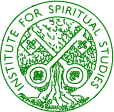
|
|
The Faithful at Prayer |
Seminar delivered by Professor Abdul Khaliq Kazi on July 13, 2004Historians of religions, theologians, and believers of all faiths agree in recognising the central position that prayer occupies in religion. According to the American philosopher William James, without prayer there can be no question of religion. With these words, the Sufi Professor Abdul Khaliq Kazi introduced his address on 'Prayer in Islam' to an audience at the Institute for Siritual Studies, at St Peter's Church, Eastern Hill, on Tuesday the 13th of July. He then continued. Prayer is the heart and soul of religion, and of being religious. The forms of prayer differ, but I think the experience is common, whether you are Christian, Jewish, Buddhist, for when one enters into contact with the sacred, holy, absolute, one steps into the presence of God. The spiritual dimension of Muslim prayer begins with ablution. The Islamic emphasis that the purity of intention is uppermost opens the door within the heart to ask, "Why am I doing that?" The Islamic terms dealing with prayer are Salat, Ibadaht, Dhikr, and Du'a. Salat are the mandatory formal prayers one says at least five times daily, facing Mecca. These have never changed from the time of Mohammed 1400 years ago. The first are said between dawn and sunrise, then at midday, mid-afternoon, sunset, and near midnight. The protion of the Qur'an recited in every prayer (the equivalent of the Lord's Prayer) is as follows: The name of Allah is used for God by Arabic-speaking Christians also. Each prayer takes ten to twenty minutes to perform. Ibadaht is a wider concept of service or worship, including other mandatory acts such as fasting in the month of Ramadan, Zakat and Hajj. In Ramadan, the ninth month of the Islamic lunar calendar, during the daytime while fasting, one may not eat, drink, smoke or indulge in sexual activity with one's spouse. It is a time for t aking stock of one's life for the past eleven months, repenting of one's sins and building new habits of righteous living. So a lot of reading of the Qur'an is done during this month. It is a month of forgiveness, of making a U-turn in one's life. Zakat, sometimes called alms tax, is an annual levy of two and a half percent on a person's savings (not income) once these reach a certain level. It is either collected by an Islamic state, or deducted and spent privately on the needy and poor, or other charities. A Muslim is also required to be charitable as and when the need arises. Hajj, the pilgrimage to Mecca at least once in a lifetime, is both a physical and spiritual journey. A pilgrim goes back to the time of Abraham, Ishmael, his mother Hagar, and goes further back to Adam, who leaves his Paradise and comes to Arabia to pray for God's forgiveness at the mount of mercy. One is supposed to return from the Hajj as though one had never committed a sin. Apart from these, helping the sick, the elderly, a child, loving care of family, respect and serving the needs of one's parents, doing the job properly, these are acts of Ibadah. Dhikr is essentially a repetitive remembrance of God, especially as practised by Sufis. A believer is supposed to constantly remember God, and since a human being cannot remain focussed for too long, a deliberate act reminds one of the benevolent God. A Sufi has structured Dhikr, a form of meditation, perhaps not unlike Yoga practice. Du'a is supplication and gratitude to God for all one's needs, for daily bread, forgiveness, justice, guidance, peace and harmony at home and abroad. The purity of intention is the rock on which all spirituality stands, and which opens the path to further spiritual progress. Furtheremore, one's mind needs to be involved in all acts of prayer and worship. That is why one cannot pray while intoxicated; 0.05 or even less is too much. A saying of the Prophet reads: "You should worship God as though you see Him; if that is not possible, then be in a state of acute awareness that He sees you."
This site is hosted by St Peter's Eastern Hill,
Melbourne, Australia. |